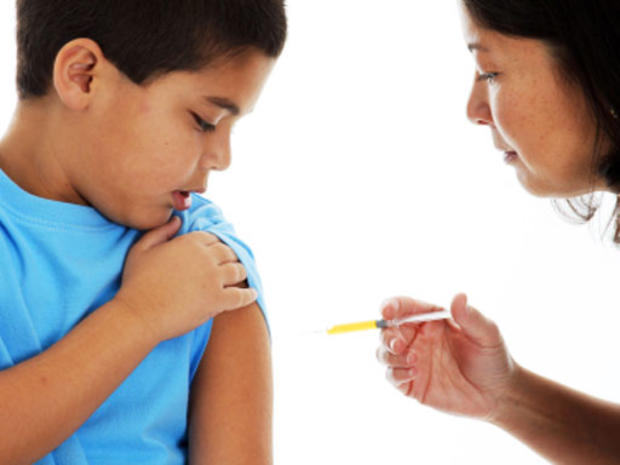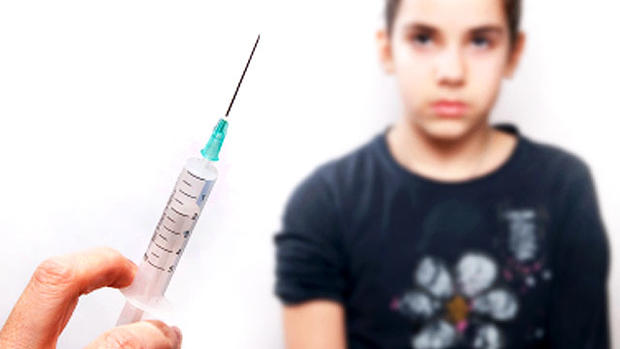Chickenpox vaccine protects unvaccinated? What study says
(CBS) Vaccinating kids for chickenpox helps even protect unvaccinated babies from the potentially deadly disease, according to a new CDC study.
PICTURES: Vaccines for kids: 8 states where parents say no
Before the U.S. Varicella Vaccination Program kicked off in 1995, infants under 12 months old were up to four times more likely to die from chickenpox, also known as varicella infection, compared to children who were 1-14 years old.
"Many people think of chickenpox as being a completely benign disease, but it's not," Dr. Elaine Schulte, a pediatrician at the Cleveland Clinic Children's Hospital, told Fox News. "One hundred kids died of chickenpox last year, and typically that's because they get pneumonia or they get a secondary skin infection with a bacteria. And they can get very, very sick."
The new study tracked chickenpox cases from 1995 to 2008. It showed nearly a 90-percent decline in infant chickenpox infections during that 13-year period, even though infants under the age of 1 are ineligible for the vaccine.
What explains this effect?
"By having those people who are recommended to be vaccinated, we decrease the amount of disease that's going around," study author Dr. Adriana Lopez, a CDC epidemiologist, told CNN. "That therefore decreases the exposures that people who aren't protected would come across."
Chickenpox is a highly viral illness that causes an itchy rash and blisters. It is most easily spread from two to three days before the rash appears until all the blisters have crusted over, according to WebMD. Fever-reducing medications and oatmeal baths might help ease symptoms.
The study authors said even though their findings showed a positive trend, more needs to be done.
"There is still disease circulating," Lopez told CNN. "By increasing coverage in those who are recommended to be vaccinated, then we will be able to protect those who cannot get vaccinated, like infants, and also people who have medical indications that don't allow for them to be vaccinated."
The study was published in the Nov. 28 issue of Pediatrics.

